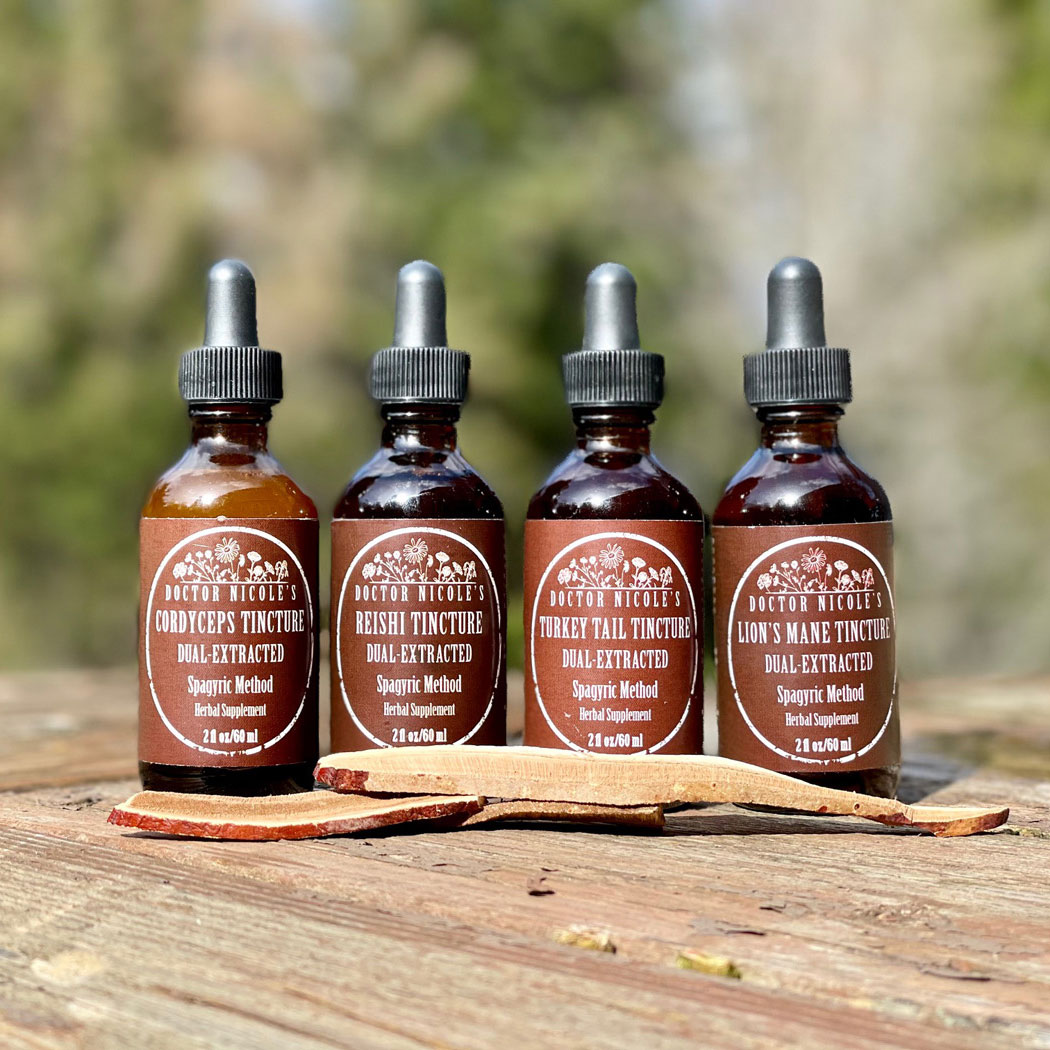Persistent After Effects of Viral Illness
For many, recovery from severe acute respiratory syndrome lasts a few weeks. But for up to 50% of the those who have been diagnosed with the illness, symptoms can linger for months — possibly even for years.3 Ongoing fatigue, loss of smell, and brain fog are a few of the frustratingly persistent after effects of the viral illness, although symptoms can be varied and difficult to pin down. Treatment options have alluded researchers and physicians since they were unsure of the underlying mechanism of the disorder — until now. A recent study has uncovered a possible solution: addressing autoimmunity and the subsequent chronic inflammation.
The Study
Scientists at Duke University Medical Center set out to explore why some have not fully recovered their sense of smell after a severe acute respiratory viral infection. They discovered the dysfunction is strongly linked with an autoimmune response attacking the olfactory nerve cells, which leads to a significant decline in those cells.
Published in the journal Science Translational Medicine, their findings may also help to explain other ongoing symptoms, such as fatigue, brain fog, hair loss, rapid heartbeat, and shortness of breath.2
“Fortunately, many people who have an altered sense of smell during the acute phase of viral infection will recover smell within the next one to two weeks, but some do not,” said senior author Bradley Goldstein, M.D., Ph.D., associate professor in Duke’s Department of Head and Neck Surgery and Communication Sciences and the Department of Neurobiology. “We need to better understand why this subset of people will go on to have persistent smell loss for months to years after being infected with [the viral illness].”1
For the study, Goldstein and colleagues at Duke, Harvard, and the University of California, San Diego examined 24 olfactory epithelial biopsies, including nine from patients experiencing long-term loss of smell. What they found is that there was widespread inflammation caused by T-cell infiltration of the olfactory epithelium — the area where nerve cells associated with smell are located. This inflammatory response persisted despite the absence of the viral infection, leading the researchers to conclude the process to be autoimmune in nature.
“The findings are striking, it’s almost resembling a sort of autoimmune-like process in the nose,” Goldstein notes. “We are hopeful that modulating the abnormal immune response or repair processes within the nose of these patients could help to at least partially restore a sense of smell.”

Naturally Calming Autoimmunity and Inflammation
As someone who has successfully managed multiple sclerosis for decades, I have discovered over the years what has worked for me in taming inflammation, avoiding autoimmune flares, clearing brain fog, and boosting energy. The following tips may also be helpful for those who are dealing with “long-haul” viral illness and would like to feel better sooner rather than later. The three areas that I have found to be essential are diet, lifestyle habits, and herbal remedies.
Diet
Not surprisingly, an anti-inflammatory diet is key. Focus on an abundance of non-starchy vegetables (particularly leafy greens); healthy fats such as extra virgin olive and coconut oils; wild-caught fatty fish; grass-fed/free range meats and poultry; low-sugar fruits like avocados, melons, and berries; and nuts.
Many are embracing what is called a ketogenic Mediterranean diet where the main source of fat is olive oil, fish and seafood are the primary protein sources, and dietary carbohydrates are green vegetables, wild foods, and salads. Interested in a more traditional Mediterranean diet? It too is exceedingly helpful for reducing inflammation. As always, it is wise to steer clear of processed foods, high salt intake, and refined sugar since they are highly inflammatory.5,6
And don’t forget to feed your microbiome! When the “good” bacteria in the gut are happy and thriving, it improves overall gut health, promotes brighter moods, and helps to keep inflammation in check. Why? Because when the microbiome becomes imbalanced, it can lead to autoimmunity, leaky gut, arthritis, depression, neurological disorders, and more — all of which are closely tied to inflammation.4 Have a look at my post, “Fertilize Your Gut? You Bet! Here’s How” for a detailed list of helpful foods.
My Balanced Gut Blend is also a powerful ally as it contains specific herbs that heal leaky gut, encourage a robust microbiome, and cool inflammation. You can learn more about this potent formulation here.
Lifestyle
Do you know that stress can trigger inflammation? It’s true! While it is always beneficial for health and wellbeing to take steps to minimize ongoing stress in our lives, it is particularly important when you are dealing with chronic illness and inflammation.
My favorite lifestyle methods for taming stress include a simple breathing technique, spending time in nature, gratitude, decluttering my space, and exercise.
Lastly, smoking, drinking alcohol, and leading a sedentary lifestyle promote inflammation, as do food sensitivities and allergies. It is best to give up these habits and take an IgG test to identify any food intolerances that you may have.
Herbal Remedies
No wellness protocol to reduce inflammation would be complete without including herbal medicines — especially medicinal mushrooms. The four I use everyday are reishi, lion’s mane, turkey tail, and cordyceps, which are all found in my Mushroom FOURtress bundle. These botanicals are the number one reason why I was able to get out of my wheelchair and regain my health — they are that powerful.
Used for centuries in Traditional Chinese Medicine, these dual-extracted, fruiting body tinctures have unique research-backed benefits that include: lowering inflammation, reducing stress, modulating the immune system, boosting brain function, fighting viral and bacterial infections, stimulating Nerve Growth Factor (NGF), improving energy, inhibiting cancer, lessening brain fog, managing blood sugar and more.
PHENOMENAL!
“For the past 10+ years, I have struggled with Lyme disease and chronic fatigue. I’ve used a variety of different natural supplements over the years — including seemingly high-quality powdered medicinal mushroom extracts, all with limited success. I was hesitant to try yet another herbal remedy, but I am so happy that I did. The results have been nothing short of phenomenal!
Within two days, the inflammation disappeared and the brain fog subsided. Soon after, the low-grade fibromyalgia pain also vanished, along with the tingling nerve sensations in my toes and fingers. Interestingly, my handwriting improved with greater motor control.
It has been years since I have had this much energy!
Thank you so much Nicole. I cannot tell you what a blessing it is to feel healthy and like myself again!” -C. Wright
If you are struggling with long-haul viral illness or another health concern, these natural remedies are for you. To learn more about how herbal medicines can change your life for the better, visit the apothecary today!
Nicole Apelian
Nicole’s Apothecary Products in this Post
References
- Duke University Medical Center. (2022, December 21). Scientists find key reason why loss of smell occurs in long COVID-19: The inflammatory mechanism could also help explain other long COVID-19 symptoms. ScienceDaily. Retrieved March 7, 2023 from www.sciencedaily.com/releases/2022/12/221221154434.htm
- John B. Finlay, David H. Brann, Ralph Abi Hachem, David W. Jang, Allison D. Oliva, Tiffany Ko, Rupali Gupta, Sebastian A. Wellford, E. Ashley Moseman, Sophie S. Jang, Carol H. Yan, Hiroaki Matsunami, Tatsuya Tsukahara, Sandeep Robert Datta, Bradley J. Goldstein. Persistent post–COVID-19 smell loss is associated with immune cell infiltration and altered gene expression in olfactory epithelium. Science Translational Medicine, 2022; 14 (676) DOI: 10.1126/scitranslmed.add0484
- “Destin Groff, Ashley Sun, Anna E. Ssentongo, Djibril M. Ba, Nicholas Parsons, Govinda R. Poudel, Alain Lekoubou, John S. Oh, Jessica E. Ericson, Paddy Ssentongo, Vernon M. Chinchilli. Short-term and Long-term Rates of Postacute Sequelae of SARS-CoV-2 Infection: A Systematic Review. JAMA Network Open, 2021; 4 (10): e2128568 DOI: 10.1001/jamanetworkopen.2021.28568
- Nicole Apelian, Ph.D., “Why Healing a Leaky Gut Should be a Top Priority; Plus: 6 Herbs for Leaky Gut”. https://www.nicoleapelian.com/blog/why-healing-a-leaky-gut-should-be-a-top-priority-for-healthplus-6-herbs-for-leaky-gut/
- Nicole Apelian, Ph.D., “High-Salt Diet Linked to Inflammation, Multiple Sclerosis”. https://nicoleapelian.com/blog/high-salt-diet-linked-to-inflammation-multiple-sclerosis/
- Nicole Apelian, Ph.D., “This is How a Sugar Detox Can Change Your Brain for the Better”. https://nicoleapelian.com/blog/this-is-how-a-sugar-detox-can-change-your-brain-for-the-better/






